2023/2024 High School
We invite you to watch our open house and see the wonderful offerings our high school has lined up for your students! Click below to watch our virtual open house!
Watch the open house HERE!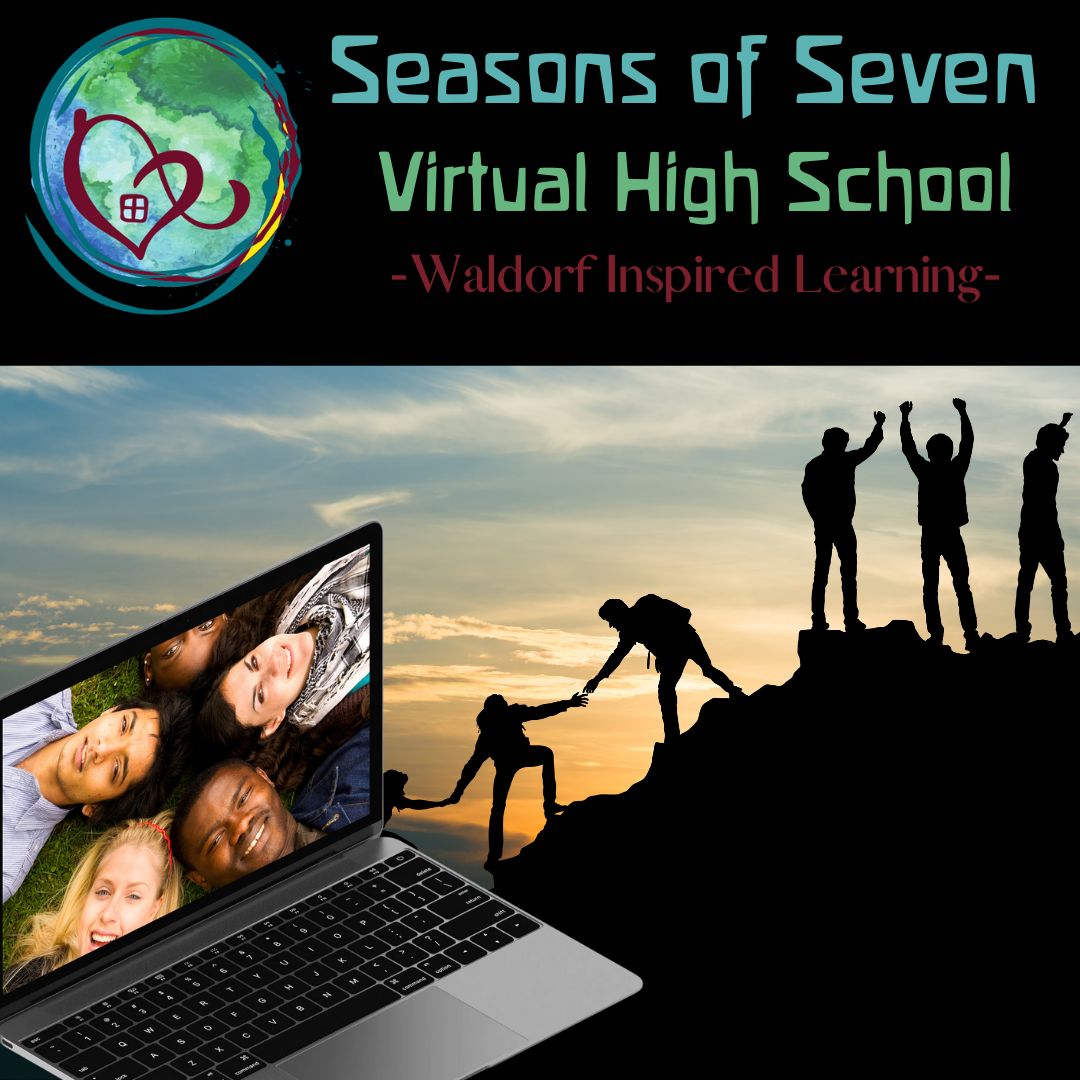
Live Zooms in Pacific Time
Class 9/Grade 9
Main Lesson Zoom: Tuesday & Thursday 9 am
Math Zoom: Tuesdays at 11:00 am
Guardianship Class: Thursday 7 am
Enrichment: Wednesday 8 am
Class 10/Grade 10
Main Lesson Zoom: Monday & Wednesday 11am
Math Zoom: Tuesdays at 11:30 am
Guardianship Class: Thursday 7 am
Enrichment: Tuesday 8 am
Class 11/Grade 11
Main Lesson Zoom: Monday & Wednesday 7 am
Math Track Zoom: Tuesdays at 10:30 am
Guardianship Class: Thursday 7 am
Enrichment: Wednesday 9 am (8:30 am Handwork rotation)

Family Testimonial
"Thank you so much for your dedication, your creativity, and for the passion you demonstrate in teaching. Your patience, encouragement and acceptance of each one of your students shines through in your work and has a deep impact on the development of their sense of self. You are a truly an amazing educator. We are so grateful to have you as our teacher! You have helped transform, what initially seemed an intimidating experience, into the best decision we made for Luna. I can’t express how incredibly helpful it has been to have your support in this homeschooling journey. We look forward to all that is to come!" ~Laura. E
Flexibility, Integrity, Connection and
Waldorf-Inspired Education for All
At Seasons of Seven™ we provide solutions for families! Deep & rich education, passionate teachers, and the flexibility to fall in love with learning wherever and whenever is best for YOUR family!
Apply Now!High School Grade Descriptions
Full Experience Guardianship Class:
In the Guardianship Class, our Guardian teachers will support the full experience students through monthly and seasonal themes of focus and various projects. Students will have support and guidance in developing capacities for managing their time, leading and collaborating as a team, finding opportunities to go out and serve their local communities, asking for help when needed, and so on.
Guardian teachers are inspired by the striving to build a sense of connection and belonging for the group that will help students create ways of both, deepening their High School community and staying accountable to themselves and their teachers in their learning and creative work.
Class 9:
Modern History: Children have journeyed through the epochs of time, characterized by myths and legends. They soon arrived at real recorded Historical events. These events have led us to modern times and more practically into the modern age. The focus will be on specific ideals that were at the forefront of certain historical events and the biographies of key figures. We will endeavor to create a space for them to form their own judgments from within their own capabilities. History lessons will lead the children, from passing judgment to forming judgments of their own.
Physics: Our very first science block will be the study of Thermodynamics. We will perform experiments to understand the laws of thermodynamics, understand the relationship between heat and temperature, build our own thermometer, and finally work our way up to understanding the workings of an engine. Students will perform experiments, write Main lesson entries, write quizzes, read science articles, and present their individual projects.
Art History: The powerful subjectivity and emerging critical intelligence of the young adolescent encounter an underlying theme of polarities woven through the Waldorf curriculum for Ninth Grade. The weeks of studies in the realm of Art History will take us on a journey through human history through art while echoing the gesture of the dramatic tension between opposites. As we explore various times of history through changes reflected in art, we will encounter dramatic tension of dualities – light and darkness, Human Being and Nature, pagan and Christian, good and evil, death and resurrection – resonating with the inner search for identity and meaning.
This Main Lesson block is an overview of the primary visual arts, mostly painting, and sculpture, from pre-historic times to the Renaissance.
Students will look at various examples of art through slides, be encouraged to visit local Art Museums to look at their exhibits, explore and discuss some of the online museum exhibits during our live online class sessions, and create their own copies of pieces inspired by various periods we will explore.
In the process, students will create a main lesson book consisting of artwork, written composition texts, diagrams (if applicable), and personal touches that show attention to aesthetic appearance and page design for both, pages of writing as well as the pages of drawing. While following the cultural development through active observation of historical works of art, students will also develop an appreciation for art, aesthetics, and attention to detail.
Math: We will begin this course with a review of prealgebra concepts. We will then dive straight into algebra spending a significant portion of the year on solving linear equations using multiple techniques. Along the way, we will review and deepen basic geometry concepts and begin to look at combining geometry and algebra (a.k.a. graphing). Ultimately, the class will build up to solving 2nd-degree equations (quadratics).
During this year, we will also look at several interesting math puzzles.
Permutations, Combinations & Probability Main Lesson:
“Probability is the very guide of life.” -Cicero"
The Permutations, Combinations & Probability Main Lesson is an exploration into possibilities and chance. We will learn how to find the number of possible outcomes in an event and then use these outcomes to discover the likelihood of a specific outcome occurring. Along the way, we will learn how probability theory developed during the 17th century and we will look at various applications.
Biology: In the biology block, we start by studying how humans interact with the world by studying the five main senses - sight, smell, hearing, feeling, and taste. How does the body sense? What challenges may come up and how have humans worked through any problems? We then go from the extremities of our body to what makes up the core of our body - the bones / skeletal system. We will study this subject through artistic drawings, modeling, descriptive writing, and by conducting a few simple experiments.
The Novel: In this main lesson block, we will examine the genre of the novel through the prism of Alexandre Dumas’ The Count of Monte Cristo. This classic was produced during the time when the genre was in its fullest development and creates the opportunity for students to become familiar with the challenges of reading historical writing. We will study various elements of the novel, such as story, plot, and character, as well as aesthetic and thematic development as the novel genre grows and changes over time.
With this understanding, students will workshop excerpts from their own “novel.” This will create an opportunity to apply these specific aspects of fiction to their own work, as well as practicing the use of rich vocabulary, imagery, and other written conventions. Additionally, students will work on both self and peer editing skills to solidify their grasp of correct grammar, spelling, and mechanics.
Finally, we will explore questions of translations, abridgments, and omissions. Noticing these changes and how they depend on the audience and historical period of a publication continues to be relevant in how language is used and influenced in our contemporary world.
Chemistry: Our third science block will involve the study of organic chemistry. We start by studying what makes up a plant? What is the inter-relationship between elements found in nature and the way plants store energy? How do we name these organic compounds? We will learn this and more by conducting experiments, writing quizzes, writing main lesson entries, reading articles, and presenting a project.
Earth Science: In the final science block we will study our planet Earth. Is Earth static or dynamic? Is there a way to make sense of the different formations on Earth like volcanoes, mountains, and trenches? We will study this subject through reading articles, quizzes, Main lesson book work which will involve drawings, descriptive writings, and finally project presentation.
Class 10:
Physics: We will kick off our science blocks by studying objects in motion: particularly linear, oscillatory and circular motion. What factors might affect this motion? Where do we see this in real life? Can we quantify the motions? Can we apply these different kinds of motion to create a new and interesting project? This will be a hands on block where the student will conduct experiments, write Main lesson entries, write quizzes, read articles and finally present a project.
Poetry: The very first tales of humankind were those told in verse and passed on from one storyteller to the next. In this block, we will be tracing the development of poetry from its roots in this oral tradition to its use as a diverse expressive form today. Parallel to the development of the art form itself, we will also use poetry to explore the evolution of both the sounds of the English language and the thought patterns of different eras.
Much of the work we do with the poetic forms will be explicitly out loud and focusing on rhythm and auditory engagement. With this in mind, students are expected to read poetry differently than a novel or short story. We will use the form and conditions of different types of poetry as a means to answer the question, "How does this poem work?" Through working with this question of technique, we then approach the question, "What does this poem mean?"
After learning about each form, each student will write an original poem following the guidelines of that form. Students should be prepared to do heavy editing and revising of their poetry to best capture the impulse of each type. At the end of the block, all the students' original poems will be beautifully written and bound together for their own Poetry Anthology, in addition to notes from class on poetic history, forms, and technique.
Biology: For the second science block, we will study the following systems in the human body - metabolic system, endocrine system and nervous system. Students will then put their understanding of these systems into main lesson entries through drawings and descriptive writings. As in other science blocks, there will be quizzes, project and science article reading.
Ancient History: During this Main lesson we journey back to various Ancient Civilisations that reflect the development of human consciousness. The question of how many objects and facets came to be in existence, will be answered on our journey back to Ancient times.
The interaction between human societies and the environment in which they live, will be our central theme.
The role of Nature, the changing of the seasons and the heavenly constellations, all play an important role.
Math: This course will cover the fundamental concepts of geometry and will lead into Algebra II, Trigonometry and Logarithms. We will begin with an overview of basic geometrical forms such as triangles and quadrilaterals. We will then look more at angles and the relationship these have in and out of circles. As the year progresses, we will go from analyzing the areas of triangles and circles to looking at the volumes of more complex, three-dimensional figures such as cones and spheroids. We will also look at the Pythagorean Theorem, ratios and proportions of geometrical objects, proofs and basic trigonometry. This will continue into the spring semester where we will pick up with an extensive review of solving linear and quadratic equations. The class will learn to simplify complex expressions and solve intricate equations. We will also delve into analytic geometry (graphing).
Greek Geometry Main Lesson:
The 10th Grade Greek Geometry Block is an exploration into the Greek mathematical mind. Beginning each day with Pythagoras’s Golden Verses, we ask the questions that the Greeks also asked for the first time in humanity’s history: How do we know what we know? The essence of proof is explored, and, through the well-known Pythagorean Theorem, many different kinds of proofs were experienced. Proof is what brought the Pythagoreans to crisis when they proved that the diagonal and the side of any square were incommensurable! The power of pure thought and the true nature of the perfect circle (as something that resides only in our minds) were explored. , that number defined by a circle, is another mysterious incommensurable number, which nevertheless, Archimedes found a reliable way to approach. Between Pythagoras and Archimedes came Euclid, the Father of Geometry. Understanding the new Greek motivation to know the world through observation and thinking (rather than story and tradition) allows us to see why Euclid devoted his life to the systematic construction of theory after theory, based only on a handful of assumptions (postulates), definitions, and logical presuppositions. Finally, after practicing our hand at the Great Greek Geometric Game using only compass and straightedge, we apply our own formidable powers of thought to understanding Euclid’s own proof of the Pythagorean Theorem.
Chemistry: For the third science block, we will study the nature of acids, bases and salts. We will create indicators for testing the same and will study where life truly flourishes. How does this polarity of acid and base exist in our day to day items and processes? We will study acids and bases through experiments, Main lesson entries, reading science articles and block projects.
Public Speaking: During this main lesson block, we will create a group Drama project while researching its characters and its setting from both historical and literature aspects and practicing basic research as well as presentation and public speaking skills. Tenth Grade students are ready to engage in both research as well as comparative thinking applied to investigations of how one thing relates to another, how parts or characters of an event relate to each other within the context of the event, and how they might transform as a result.
Every week will invite the students to create an artistic rendering in pencil, chalk, watercolor, and cloth, inspired by class discussions and research and presentation topics and findings. The work will be both inspired by works of art discovered in research students will be doing as well as imbued with the basic elements of design, color layering, composition, harmony, balance, and contrast.
Our journey through this block will lead us through a weaving of history and drama, enlivened by art and elevated into the thinking realm through our research and presentation weekly assignments, too.
Earth Science: The final science block involves the study of earth sciences. We will explore the topics of inner structure of earth, study of water flow, ocean currents, interplay between climate and vegetation.
Class 11:
Physics: Welcome to Seasons of Seven Grade 11! For our first science block, we will study electricity and magnetism! To understand the laws that govern electricity and magnetism, we will perform experiments, systematically write down the observations in a lab report format, read related science articles, and present a project, which is to build a motor!
Math: This course will cover topics from Algebra II and Precalculus. We will begin with a thorough introduction (possibly review depending on grade level) of 2D Cartesian coordinates. After that we will move on to reviewing Trigonometry and then go into Complex Numbers. This will be followed by combining all three subjects together along with an extensive review of algebra and an introduction of function terminology. Along the way, the class will look at graphs and roots of polynomials, exponential and logarithmic functions, ambiguous cases in trigonometry and much more.
Projective Geometry Main Lesson:
“An approach to the secrets of space from the standpoint of artistic and imaginative insights.”- Lawrence Edwards
The 11th Grade Projective Geometry Block is a challenging, highly imaginative exercise, stretching the limits of our traditional “Euclidean” worldview. Through various geometric constructions first discovered by Pappus, Desargues, Pascal and Brianchon, students explore the ways in which mathematicians for 2000 years flirted with the ideas which we now recognize as projective constructions. The effort moved forward when artists in the 15th century began to wonder how to depict scenes on flat paper which appeared to be three dimensional. PG was only recognized and developed in the 19th century. Through these explorations, we will come to appreciate a completely unfamiliar space reality which is just as valid, and in fact more generally true, than the one with which we are more used to dealing.
Tragedy and Comedy: This main lesson explores the opposing genres of tragedy and comedy. We will begin with the origins of drama in ancient Greek religious festivals, and follow the themes of self-awareness, transformation, wisdom, foolishness, and human responses to the world around them. Our work will center on two plays: the ancient Greek tragedy of Antigone by Sophocles, and the French comedy The Imaginary Invalid by Molière.
This course also helps scaffold strong work habits. We will build skills for reading plays as distinct from reading prose, and discuss how this changes our role as a reader. Additionally, students will learn and utilize specific note taking systems and practice transforming those notes into longer essays in their own words.
There are two significant artistic assignments in this course. Students will choose short sections from the varying plays, work with the imagery and sound of the language, and present their selections to the class. Additionally, over the course of the block, students will create an artistic rendering of one character from each play.
Biology: Grade 11 Life sciences involves study of a plant cell, plant-insect relationships, history of microscopy, classification and broader topics like ecology. There will be a hands-on element of studying plant cells using a microscope and artistic rendering of all that has been studied in class through drawings and write up.
Parzival: “The eleventh grade is a turning point in the adolescent’s Waldorf experience. Out of the richness of the courses, teenagers are placed in touch with their inner resources and higher selves.” – Betty Staley
This eleventh year of the school journey brings students face-to-face with inner questions that arise within them and push them to contemplate existential realities. They encounter within themselves questions that may not have answers they expect or may not have definitive answers at all. The experiences prompt them to learn to be with open-ended questions while striving to accomplish their tasks and to take responsibility for all their work.
During this main lesson block, students will explore the medieval story of Parzival and his quest while in the process encountering their own relationships between themselves and others as well as their relationship to their own inner experiences and questions like ‘Who am I?’, ‘How can I relate to you?’, or ‘Where can the truth be seen?’.
Parzival by Wolfram von Eschenbach was written in the early thirteenth century and is a very complex tale of love, adventure, courage, and a quest that becomes the weaving of the life story. The story tells of Parzival’s journey from ignorance, through doubt, to looking for the grail which in this story is a mysterious source of the power to nourish and heal.
While the story dates to the Middle Ages the adventures and encounters in the story are still very alive for our modern age in their myth and symbolism, but also in the universally human life paths illuminated within the story. Class 11 students will set out on a quest of their own during this main lesson block – a quest to find ways to articulate deep inner truths and/or struggles, to discover the importance of asking questions, the meaning held within sacrifice, courage, and love,
Students will work on rather challenging reading and will be invited to practice their capacities for independent and analytical thinking through several written assignments. Some of their assignments will prompt them to explore questions like, ‘What is destiny?’, ‘What is compassion?’, ‘Why can one feel alone even in a crowd?’; and for some they will be guided to choose their own topics and areas of focus. In the process, we will dive deeply into the scenes from the book, the symbolism woven into the story, and the characters and their unique aspects. We will enliven the work of writing and reading through class conversations, artistic work in watercolor and pencil illustrations, and the readings of dramatized retellings.
"Societies have come to define themselves by their historical myths and national narratives. … what is the story we are living within? Where is our story taking us?” – D. Blight.
Chemistry: Grade 11 Chemistry involves atomic chemistry where the students will be introduced to Laws of conservation of mass, gas laws, Avogadro's number, Periodic table, radioactivity. This could then lead to open discussion on moral, socio-economic and environmental effects of nuclear power. Students will conduct experiments, write lab reports, read articles.
Earth Science: Grade 11 Earth sciences involves study of mineral wealth, world trade and its effect in wealth distribution across the world and finally the impact on ecology. This block will conclude the sciences for Grade 11 school year.
High School Teachers
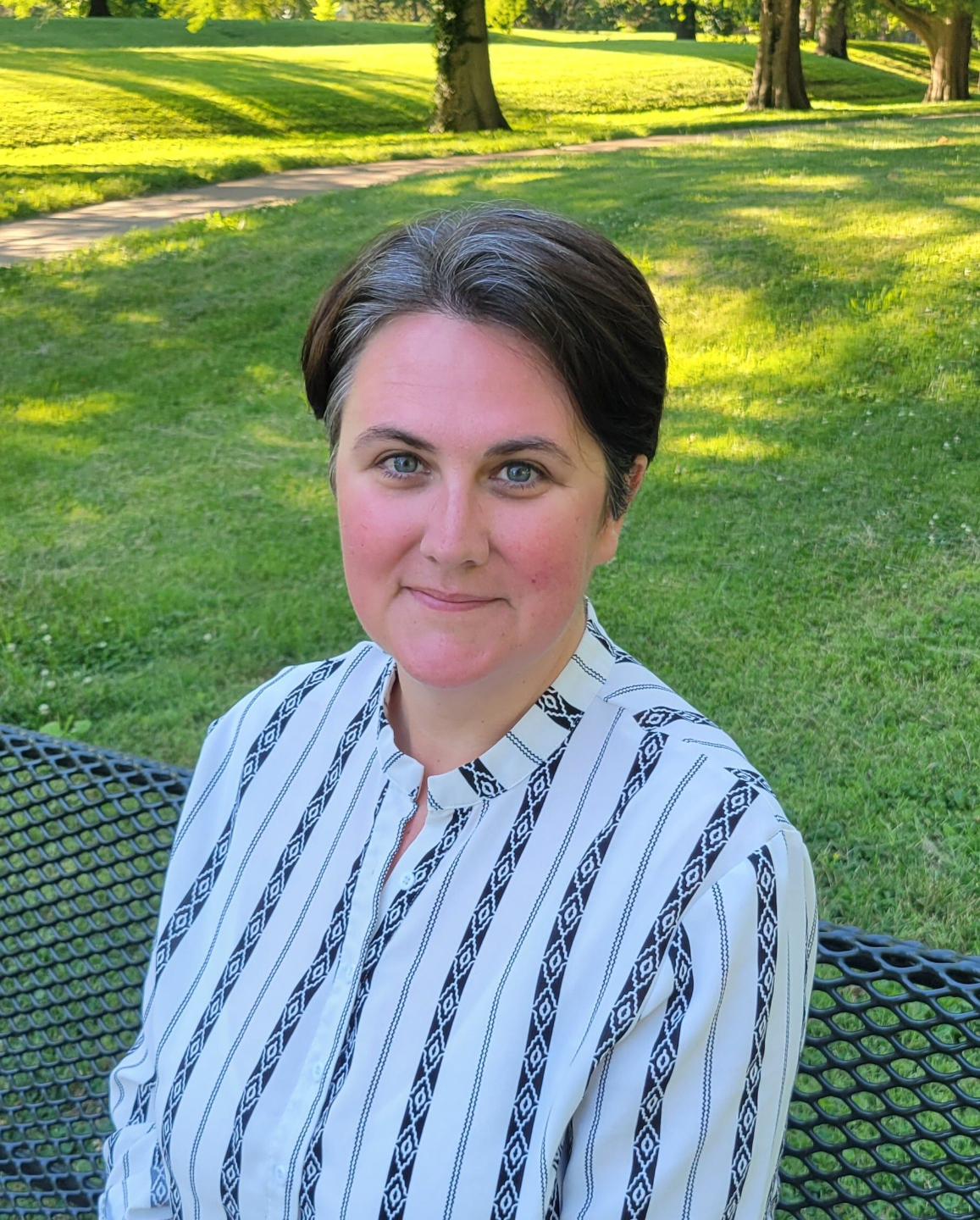
High School Humanities & Guardian ~ Daniela Sales
Daniela is excited to join Seasons of Seven as a High School Class Teacher.
She has had the blessing to journey through the waters of both, homeschooling her son and teaching in Waldorf School classrooms. Her passion for education carried on the wings of goodness, beauty and truth continually moves her to strive to create, explore, and work with students and families inspired by Waldorf education.
Daniela's work and studies are continually inspired by her deep interest in the healing aspects of education and the potential for human transformation which can be unlocked through compassionate communication, heartfelt connections, and a deepened understanding of the human being and child development. Her experience spans the homeschool setting, classroom setting, as well as virtual classroom settings.
In her free time, Daniela loves to travel and explore places in Nature with her family, meet new friends, make fiber art and craft projects as gifts, create and guide meditation journeys, study healing plant properties, read works of new ad old authors, read fairy tales from around the world, listen to music, and spend time with friends.
She is excited to meet you in her Seasons of Seven Virtual Classroom soon!
Daniela has completed the Waldorf Teacher Certification program with a focus on Grades 1 through 8 at Rudolf Steiner College in California and has been actively teaching in Waldorf school classrooms since 2011. Over the years of serving in Holistic Lifestyle and Waldorf Education settings, Daniela has served as a class teacher, subject teacher, meditation teacher and guide, parent educator, and lecture/workshop presenter a wide array of various subjects in the realm of a holistic lifestyle and creative living skills. She holds a Ph.D. in Traditional Naturopathy, an MS in Natural Health, a Bachelor’s in Business Marketing, and continually devotes time and resources to professional development and further studies in the realm of the healing aspects of education.
On her path of continued professional development, Daniela has completed the first year of the certification program focused on Education Support and Healing Education with the Association for Healing Education in Ann Arbor, Michigan. She is excited to continue those studies in the near future.
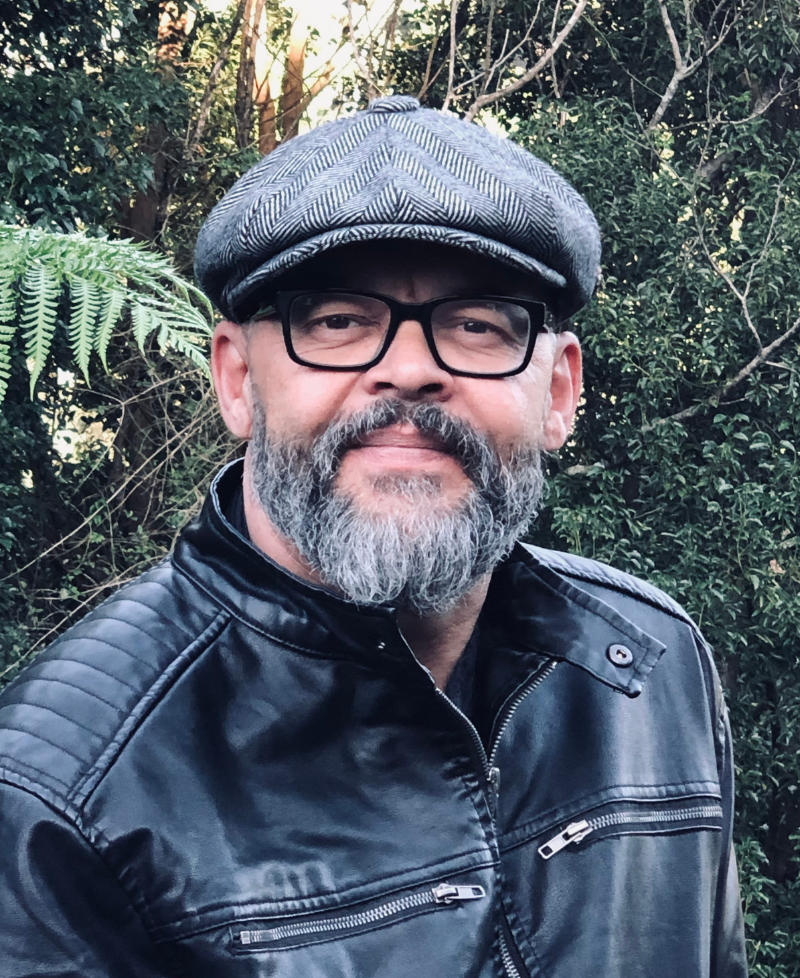
High School Humanities & Guardian ~ Gerhard Siepker
Good day. My name is Gerhard Siepker. I am a South African Waldorf Teacher. I live in the beautiful coastal province of Kwa -Zulu Natal. I am a father to three beautiful children: James 16, Anna 14 and Sophia Rose 10. My wife Bridgette is also a Waldorf teacher and we both work at the Roseway Waldorf school. I have had the privilege to experience all aspects of the Waldorf school curriculum. I have taught from first grade to the conclusion in grade 7. During this time I have attended conferences and I have been guided and mentored by amazing insightful individuals. Waldorf education inspires me daily. To see a vibrant curriculum awaken the thinking, feeling and will within a child is truly a remarkable experience. I am inspired by the movement, the stories, the approach to science and Mathematics and the arts within the Waldorf movement. I have had more than 15 years Waldorf teaching experience and I feel that I learn every day along with the children that I teach. I believe in a class room filled with good humor and laughter. This enables us to do the work needed for our times. The Waldorf curriculum forges strong work ethic and a thinking mind. Rhythm and healthy routine encourages balance and clear thought. In my private life ,my family and I spent many hours at the beach as we are avid body boarders and swimmers. We love camping and it brings us closer as a family. My other interests included: beekeeping, knife forging, weight training, cooking and film.
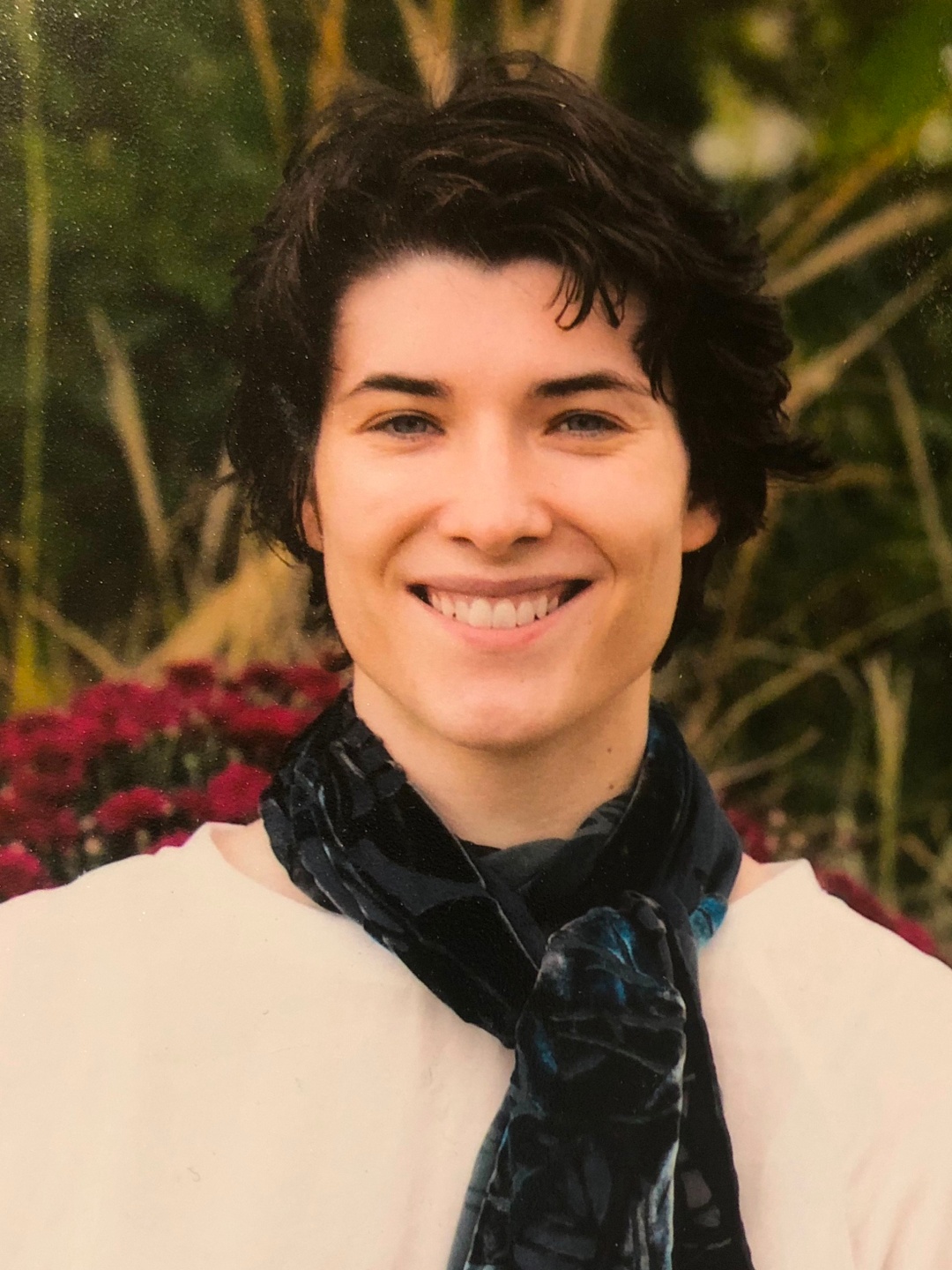
High School Humanities ~Emily Fuchs

High School Math ~ Andrew Starzynski (Mr. Star)
Andrew was born to two Waldorf teachers and raised in Chicago, Illinois. He attended the Chicago Waldorf School from kindergarten through 12 th Grade. After majoring in Mathematics and Philosophy and minoring in Computer Science for his undergraduate degree at Beloit College, Andrew went on to work in IT in Austin, Texas. He later completed a Master of Science in Applied Mathematics from the University of Houston and then went back to the Chicago Waldorf School to teach high school mathematics. During this time, Andrew completed his Waldorf High School teacher training at the Center for Anthroposophy under the tutelage of Douglas Gerwin and Jamie York. While in the training, Jamie asked Andrew to co-author the high school versions of the Making Math Meaningful math workbooks. Three years later he was married and living in Honolulu, Hawaii this time teaching both middle and high school math and computer science. In 2013, Andrew moved to Toronto where he taught middle school math at Waldorf Academy in downtown Toronto. Andrew, his partner Erika and their (now three) children joined the Toronto Waldorf School in 2017 where he currently teaches math and computer science in Grades 7 – 12.
Andrew enjoys exercising (lifting weights and running), playing with his kids and contemplating
the cosmos on a daily basis.
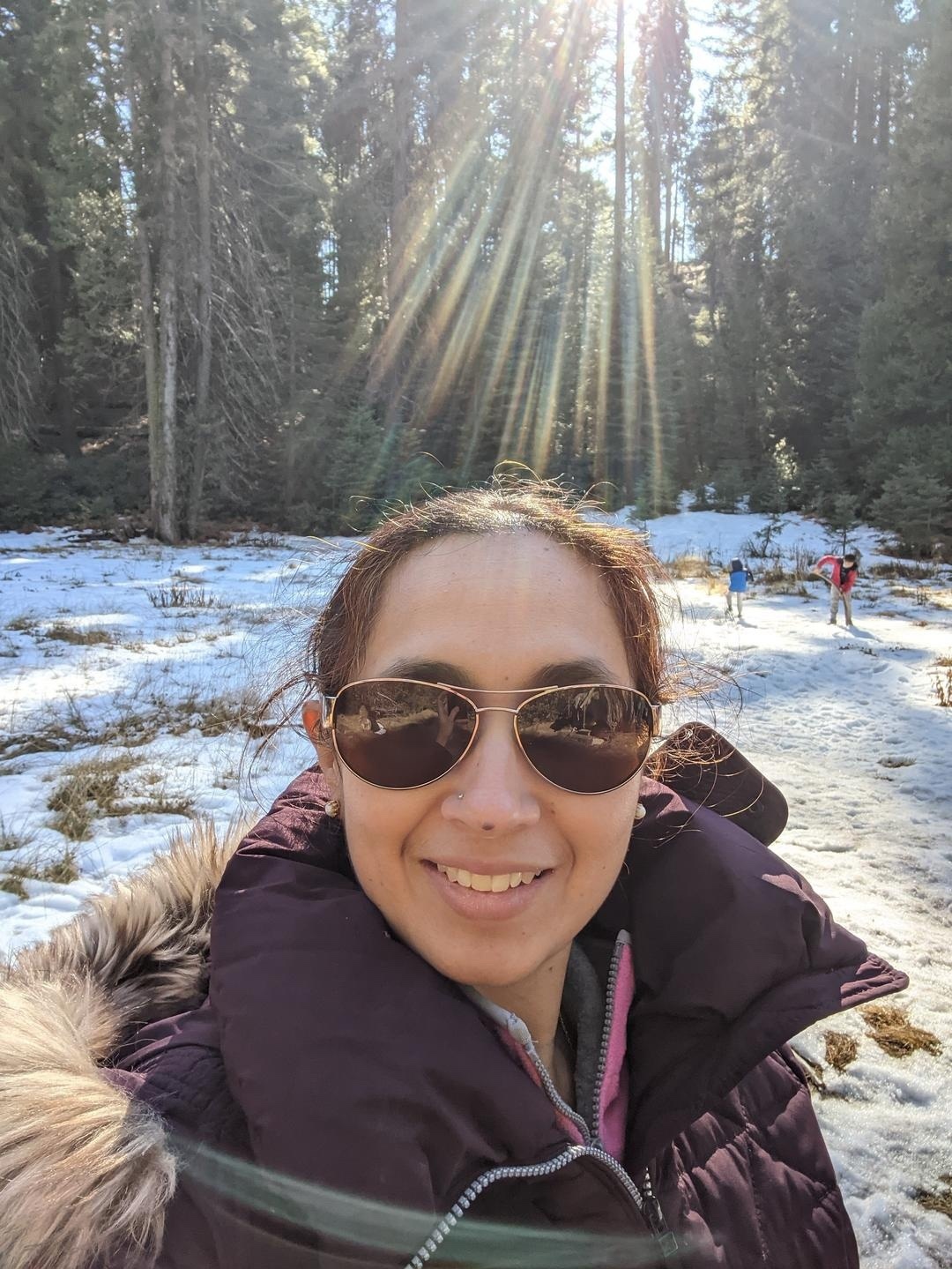
High School Science ~ Vidhya Aravamuthan
My name is Vidhya Aravamuthan. I homeschool my children and I teach at the Seasons of Seven Virtual school. I received K-8 Waldorf teacher training from Waldorf institute of Southern California. I hold a Masters in Engineering Science and Bioengineering. I am trained in Indian Classical vocal music. I love to tell stories, sing, cook, read, travel and ponder about life's mysteries. And, I love to find newer and newer ways to share what I love to do.
Teaching children in a holistic way - to their head, heart and hands is very satisfying to me. Children of today are our future. Hence, I believe my life energy is well spent when I can do my little part of nourishing the thinking, feeling and willing spheres of the child. We do this in waldorf education by a well thought out curriculum, by seamlessly bringing in art, music, movement, handwork along with the curriculum and, by strengthening the relationship between the teacher and the student.
High School Sample Lessons
Work Samples:






Enrichment is incorporated in your full class experience!
Meet your Four Fold Enrichment teachers!
Handwork With Ms. Maggie
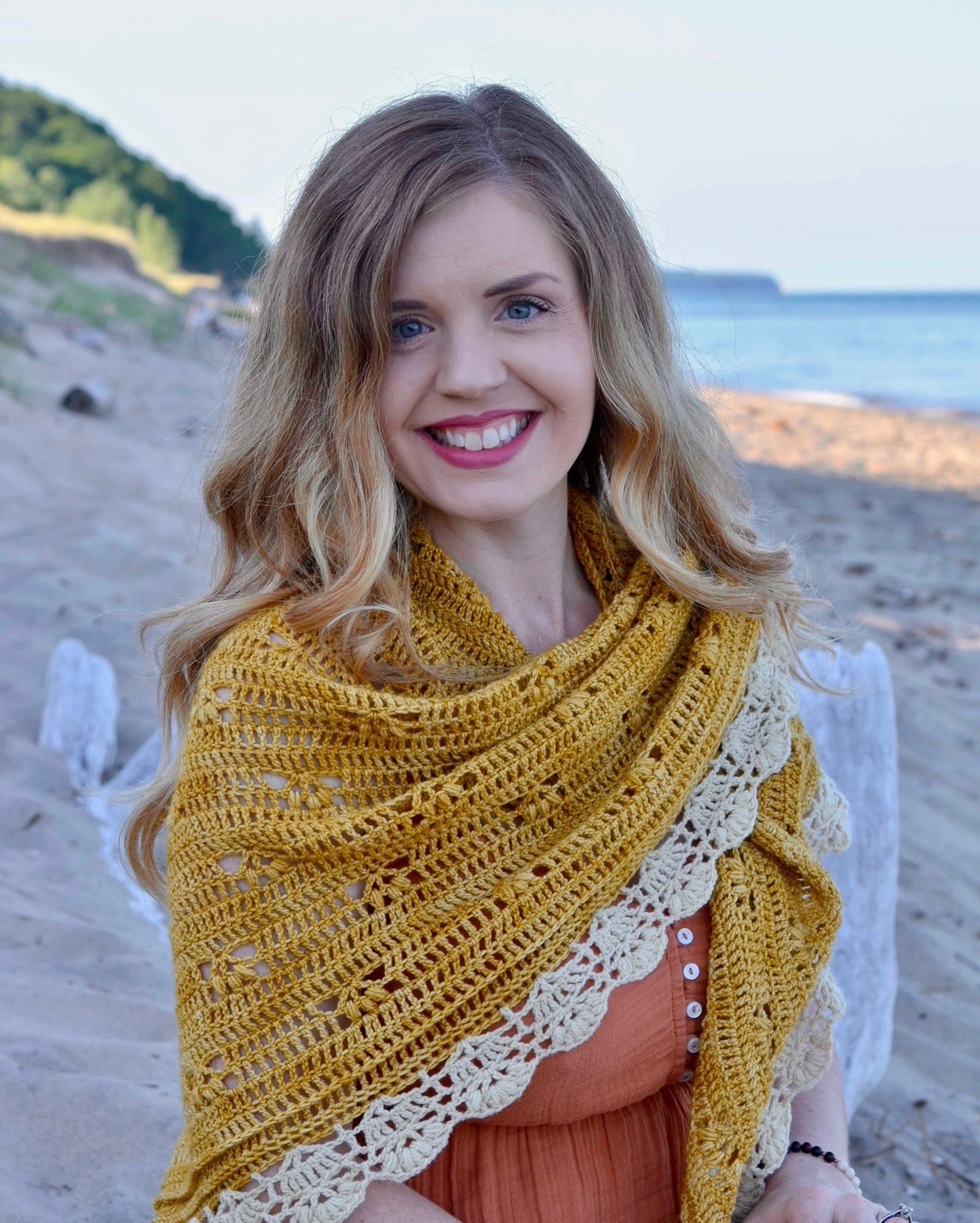
Margaret and her family live in Holland, Michigan along the beautiful shores of Lake Michigan where they love hiking and spending time at the beach. She has been homeschooling her three children for several years, using the Waldorf philosophy. Margaret's passion for handwork and fiber arts was instilled in her at a young age when her grandmother taught her to knit and crochet. She has since always had a project in hand. In 2014, Margaret began making Waldorf dolls and as the owner of Poppenhuis she now writes patterns and tutorials to teach others to make dolls. Margaret has attended Taproot Teacher Trainings and completed Waldorf Essentials Training Courses. As handwork teacher, Margaret hopes to spark a passion for handwork in children and inspire them to create beautiful works of art.
Eurythmy Inspired Movement With Ms. Tiffany
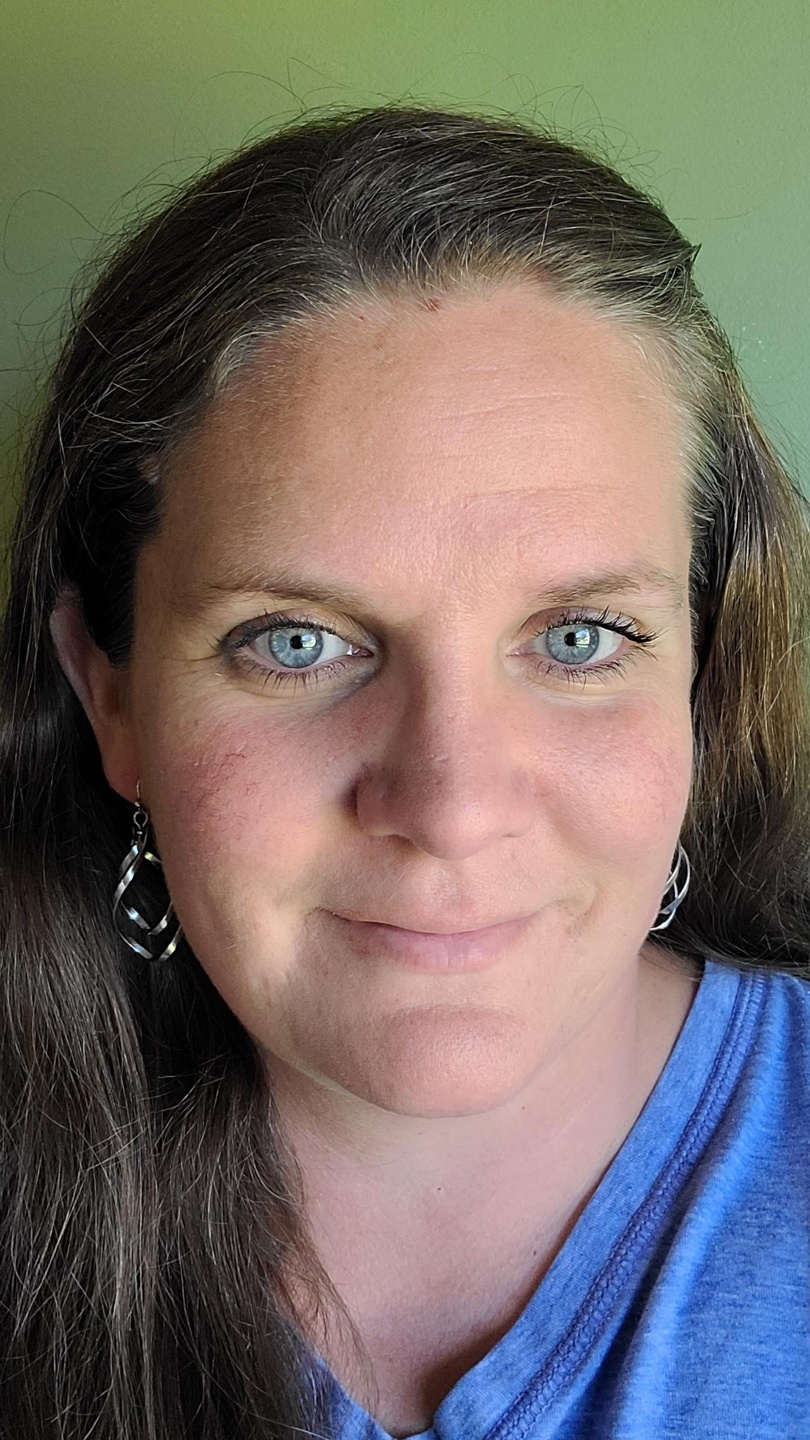
Hello and warm greetings from South Carolina in the Unites States! My name is Tiffany Conary. I am a Waldorf homeschooling mom of seven. Two of my children are grown and left the nest, four are currently being homeschooled, and one is preschool age, but keeping up with everything her brothers and sisters are doing! I am going to be the Movement Teacher this year for Seasons of Seven. I am very excited and so eager to get to know every one of my students and their families. For the past 4 years I have been doing eurythmy movement, with multiple ages and stages, in my homeschool co-op group. This is something I enjoy doing immensely! It is interesting to see what works and what doesn’t at each stage of life. I am currently working on a clear and understandable homeschool eurythmy curriculum since there is a great need for eurythmy in the home. Waldorf education is beautiful and wonderful but would not be complete without eurythmy. That is why I feel it is my call to bring eurythmy to as many homeschooling families as I possibly can. Seasons of Seven is a lovely way to provide a Waldorf education to those wanting to stay at home. YOU too should have the opportunity to do the engaging art of eurythmy as well. I am so excited to work with the younger ones and get those little bodies moving in a way that will encourage their speech process, prepare them for reading and writing, and connect their physical and etheric bodies! I am equally excited to work with the older ones to help them feel comfortable in their bodies, express the feelings they cannot with words, and to bring them into the thinking stage of life. I look forward to this year and look forward to working with you!
German with Mr. Dornemann
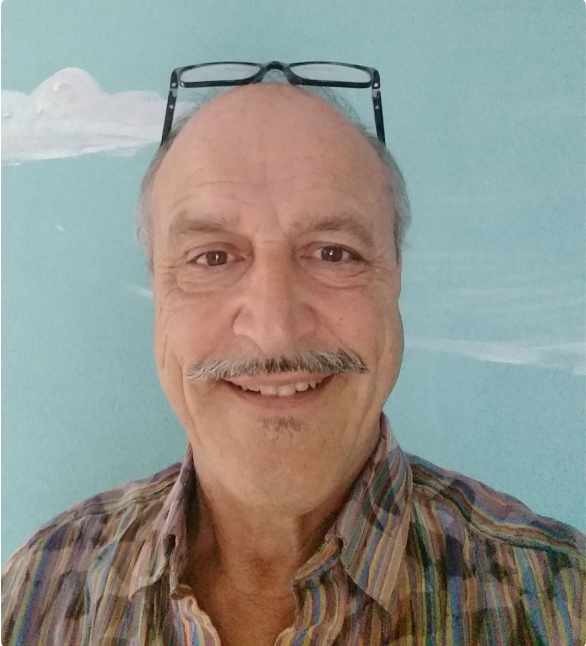
The aim of the course is to experience the German language, to get used to its sounds, acquire basic vocabulary and speaking skills. It is intended for beginners with no or little previous exposure to the German language.
In the recorded part of the lessons there will be listening and speaking activities, poems, songs, stories and tongue twisters. Students will practice speaking by repeating what the teacher presents. In our live sessions we will engage in speaking and conversation as well as call and response.
The vocabulary covered will include actions, counting, phrases, cultural references and many words describing aspects of everyday life.
Music with Mr. Mark
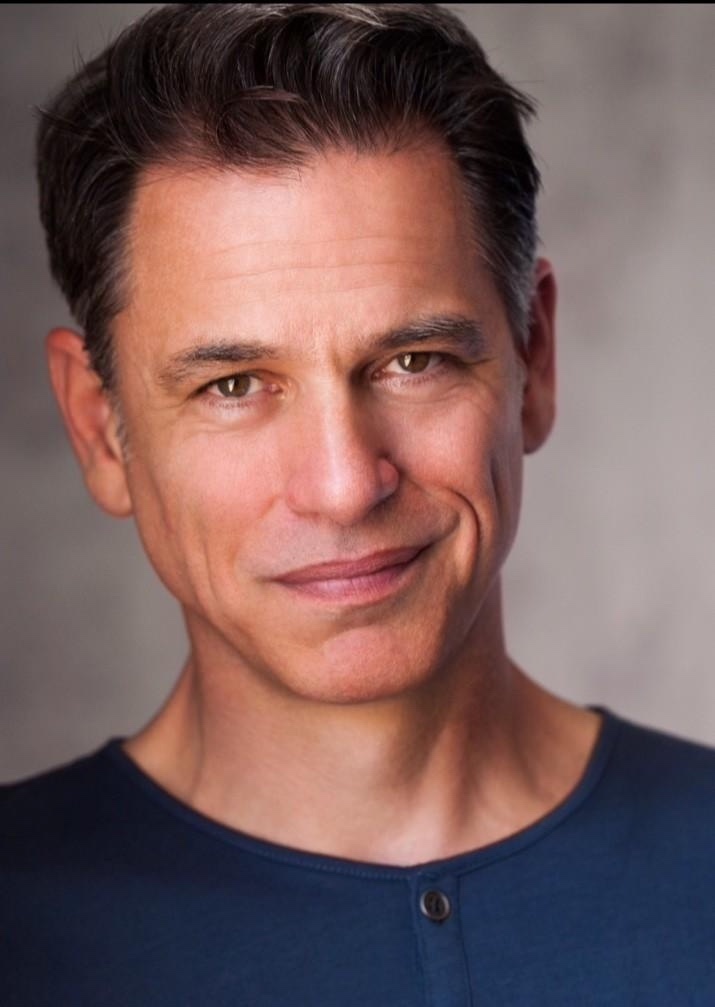
Hello! I’m Mark, and teaching music is one of my favorite things. I’ve been a professional performer (singer, musician, actor...) for most of my life. Still am. But around twenty-some years ago, when my own kids were little, I began to be interested in sharing my creative spark in a different way: through teaching. And I found such joy in sharing that spark that to this day it continues to burn bright. I am a certified Orff-Schulwerk music educator. I’m Waldorf trained -- my own kids were homeschooled Waldorf-style and went on to Waldorf schools -- and I spent several years as a Waldorf Kindy Teacher and then a Class Teacher for grades 5-6. I’ve taught music, acting, improvisation, Shakespeare, dramatic literature and more, to humans of all ages, from toddlers to octogenarians. (So ok, technically I guess that’s “most ages” not “all ages”... but you get the idea ....) I’m excitedly looking forward to meeting all of the Seasons of Seven families.


